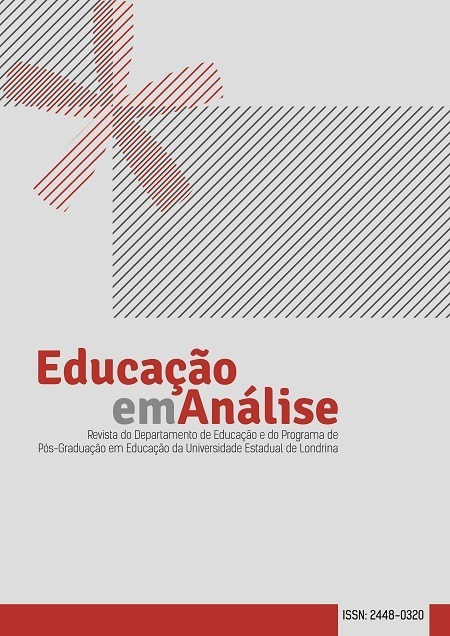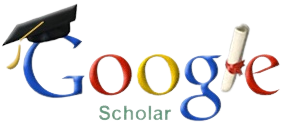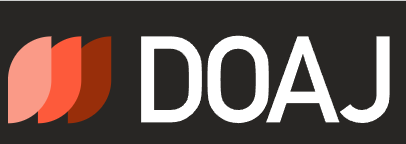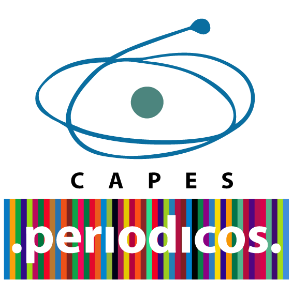Secondary school english teacher perceptions on the use of digital technologies
DOI:
https://doi.org/10.5433/1984-7939.2023v8n1p48Keywords:
Digital Technologies, Pedagogical practices, Secondary schoolAbstract
Digital technologies are increasingly pervasive in people's daily lives, transforming the way they relate, learn, and work. The integration of these technologies into schools, particularl with secondary school students who are already immersed in digital culture, is a deemed necessary by educational policies. Therefore, this study aims to understand how secondary school English teachers in public state schools are integrating digital technologies into their pedagogical practices. The research adopted a qualitative approach, using a questionnaire and interview as data collection techniques. Seven teachers responded to the questionnaire, and four took part in the interview. The results of the data analysis indicate that teachers use various digital tools to manage their work as to search, store, produce, and share content and pedagogical activities. However, the use of digital technologies as a means of authentic communication on computer networks by students is still not very prominent.
Downloads
References
BARDIN, Laurence. Análise de conteúdo. Lisboa: Edições 70, 2009.
BORDINI, Marcella; GIMENEZ, Telma. Estudos sobre inglês como língua franca no Brasil (2005-2012): uma metassíntese qualitativa. Signum: Estudos da Linguagem, Londrina, v. 17, n. 1, p. 10-43, jun. 2014. Disponível em: https://www.uel.br/revistas/uel/index.php/signum/article/view/17389/14768. Acesso em: 24 jun. 2022.
BORTOLAZZO, Sandro Faccin. O imperativo da cultura digital: entre novas tecnologias e estudos culturais. Revista Cadernos de Comunicação, Santa Maria, v. 20, n. 1, p. 1-24, jan/abr. 2016. Disponível em: https://periodicos.ufsm.br/ccomunicacao/article/view/22133. Acesso em: 1 jul. 2023.
BRASIL. Ministério da Educação. Base Nacional Comum Curricular. Brasília: MEC, 2018. Disponível em: http://basenacionalcomum.mec.gov.br/images/BNCC_EI_EF_110518_versaofinal_site.pdf Acesso em: 25 mar. 2023.
CANALE, Michael; SWAIN, Merril. Theoretical bases of communicative approaches to second language teaching and testing. Applied Linguistics, Oxford, v. 1, n. 1, p. 1-47, 1980. Disponível em: https://academic.oup.com/applij/issue/I/1. Acesso em: 2 jul. 2023.
FERREIRA, Renan Castro; MOZZILLO, Isabella. A língua inglesa no Brasil como o mercado quer: necessária, mas inalcançável. Travessias Interativas, Florianópolis, v. 10, n. 22, p. 138-150, jul./dez. 2020. Disponível em: https://seer.ufs.br/index.php/Travessias/article/view/15322. Acesso em: 10 ago. 2022.
GATTI, Bernardete Angelina; ANDRÉ, Marli Eliza Dalmazo Afonso de. A relevância dos métodos de pesquisa qualitativa em educação no Brasil. In: WELLER, Wivian; PFAFF, Nicolle (org.). Metodologias da pesquisa qualitativa em educação: teoria e prática. 2. ed. Petrópolis: Vozes, 2013. p. 29-38.
KENSKI, Vani Moreira. Tecnologias e tempo docente. Campinas: Papirus, 2013.
KRAWCZYK, Nora. Reflexão sobre alguns desafios do Ensino Médio no Brasil hoje. Cadernos de Pesquisa, São Paulo, v. 41, n. 144, p. 752-769, dez. 2011. Disponível em: https://www.scielo.br/j/cp/a/mq5QhqMxcsdJ9KfDZjqLmtG/?format=pdf&lang=pt. Acesso em: 10 ago. 2022.
LIMA, Iana Gomes de; HYPOLITO, Álvaro Moreira. A expansão do neoconservadorismo na educação brasileira. Educação e Pesquisa, São Paulo, v. 45, e190901, 2019. Disponível em: https://doi.org/10.1590/S1678-463420194519091. Acesso em: 29 jun. 2022.
NÓVOA, Antônio. Professores: imagens do futuro presente. Lisboa: Educa, 2009.
PORTO, Tania Maria Esperon. As tecnologias de comunicação e informação na escola: relações possíveis... relações construídas. Revista Brasileira de Educação, Rio de Janeiro, v. 11, n. 31. p. 43-57, 2006. Disponível em: https://doi.org/10.1590/S1413-24782006000100005. Acesso em: 12 maio 2022.
RODRIGUES, Herik Zednik; TAROUCO, Liane Margarida Rorkenbach; KLERING, Luis Roque; GARCÍA-VALCÁRCEL, Ana; GUERRA, Eder Paulus Moraes. Taxonomia e matriz de decisão das tecnologias digitais na educação: proposta de apoio à incorporação da tecnologia em sala de aula. Tecnologias, Sociedade e Conhecimento, Campinas, v. 2, n. 1, p. 85-104, 2014. Disponível em: https://econtents.bc.unicamp.br/inpec/index.php/tsc/article/view/14451. Acesso em: 10 dez. 2022.
SELWYN, Neil. Is technology good for education? Cambridge: Polity, 2016.
TUMOLO, Celso. Recursos digitais e aprendizagem de inglês como língua estrangeira. Revista Ilha do Desterro, Florianópolis, n. 66, p. 203-238, 2014. Disponível em: https://periodicos.ufsc.br/index.php/desterro/article/view/2175-8026.2014n66p203/27363. Acesso em: 1 jul. 2023.
Downloads
Published
How to Cite
Issue
Section
License
Copyright (c) 2023 Marly Krüger de Pesce, Grasiela Alfaro, Julio Ribeiro Soares

This work is licensed under a Creative Commons Attribution-NonCommercial 4.0 International License.
Os artigos publicados na Revista Educação em Análise estão sob a Licença Creative Commons Atribuição 4.0 Internacional, garantindo Acesso Aberto. Deste modo, os autores mantêm os direitos autorais de seus trabalhos e, em caso de republicação, solicita-se que indiquem a primeira publicação nesta revista. Essa licença permite que qualquer pessoa leia, baixe, copie e compartilhe o conteúdo, desde que a devida citação seja feita. Além disso, autoriza a redistribuição, adaptação e criação de obras derivadas em qualquer formato ou meio, incluindo uso comercial, desde que a atribuição à revista seja mantida.
A revista se reserva o direito de efetuar, nos originais, alterações de ordem normativa, ortográfica e gramatical, com vistas a manter o padrão culto da língua e a credibilidade do veículo. Respeitará, no entanto, o estilo de escrever dos autores. Alterações, correções ou sugestões de ordem conceitual serão encaminhadas aos autores, quando necessário.
As opiniões emitidas pelos autores dos artigos são de sua exclusiva responsabilidade.
























